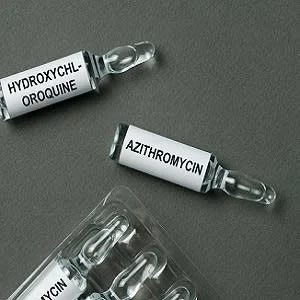As the healthcare community attempts to deal with the coronavirus disease (COVID-19), there is an intense effort to develop an effective treatment strategy. While research on the development of a vaccine continues, clinicians have been forced to use treatments that lack robust clinical evidence. With many patients succumbing to acute respiratory distress syndrome, multi-organ failure, severe pneumonia, and a variety of cardiac complications, there is an urgent need for a treatment that can treat the symptoms of COVID-19.
Anecdotal reports indicate that the old antimalarial drug hydroxychloroquine may be useful. The drug has been advocated as a treatment for COVID-19 because of its antimalarial and immunosuppressive properties. While hydroxychloroquine has been in use for many years, the drug is known to prolong the QT interval and make patients susceptible to arrhythmias, especially in the presence of other medications (like azithromycin) that also prolong the QT interval. The question is: how has hydroxychloroquine fared in patients with COVID 19?
Reports from several institutions indicate that the use of hydroxychloroquine in patients with COVID-19 treated in the intensive care unit can prolong the QT interval (36% of patients). However, when azithromycin was added to treat pneumonia in COVID-19 patients, this percentage increased to 93%. It is important to note that many patients with COVID-19 who were treated in the ICU had several confounding factors that may have also played a role in the higher rate of prolonged QT syndrome. These factors included the presence of other medications (inotropes, diuretics), heart failure, changes in electrolytes, and cardiac ischaemia.
However, researchers warn that the findings of these smaller studies in select ICUs cannot be generalised to all patients with COVID-19, especially those with less severe illness and managed as outpatients.
In one large study, no episodes of torsades de pointes were observed because hydroxychloroquine (with or without azithromycin) was immediately discontinued once the endpoints of the QT interval were reached. Thus, clinicians recommend that physicians who use hydroxychloroquine should pay particular attention to the QT interval, and once the limit is reached, the drug should be discontinued unless the patient shows clear cut benefits of the treatment. The majority of cases in these studies were evaluated in an ICU setting where close monitoring of the QT interval is possible, but this may not be true for outpatients. It is important for physicians treating COVID-19 patients to understand that there is a risk with the use of hydroxychloroquine and azithromycin, and the risk of harm should always be considered before starting such therapy.
Source: JAMA
Image Credit: iStock
References:
Bonow et al. (2020) Hydroxychloroquine, Coronavirus Disease 2019, and QT Prolongation. JAMA. doi:10.1001/jamacardio.2020.1782
Latest Articles
cardiovascular disease, ICU, COVID-19, hydroxychloroquine, QT prolongation
Hydroxychloroquine and QT Prolongation










